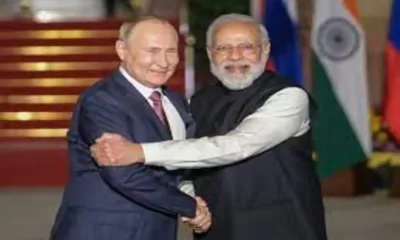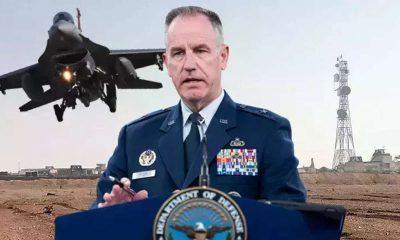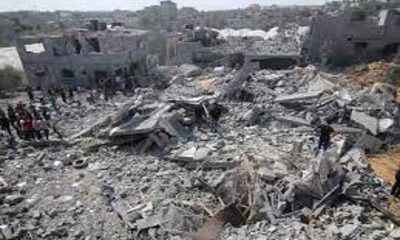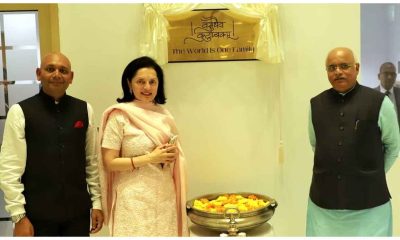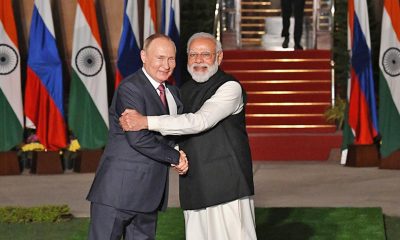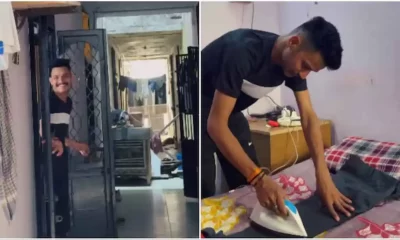Latest world news
Syria captures strategic hill near occupied Golan Heights
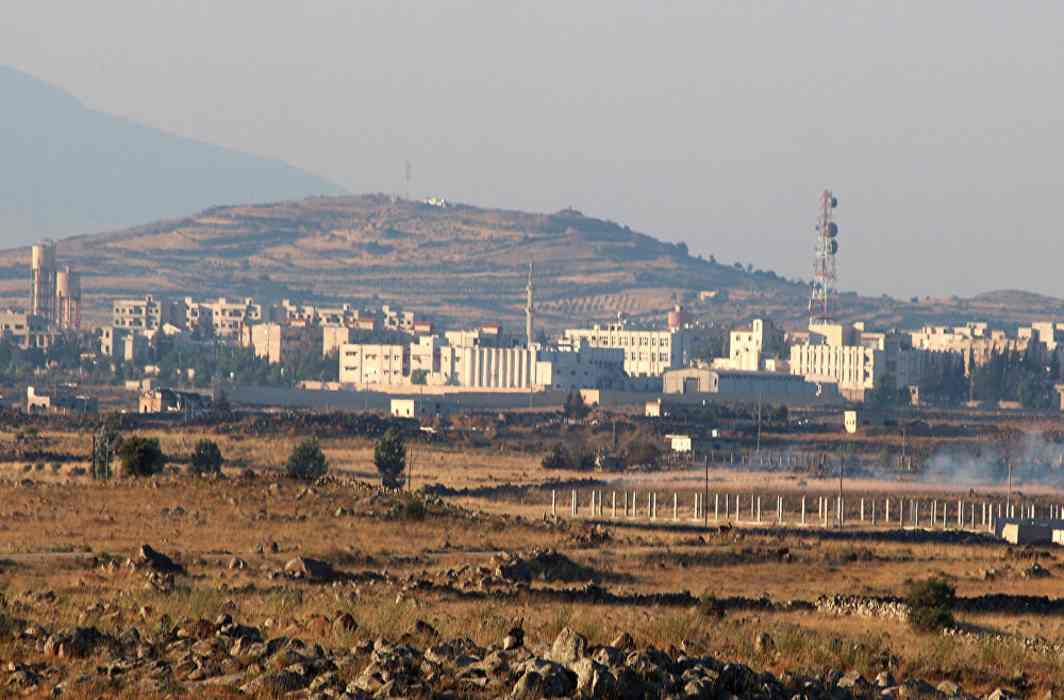
Stepping ahead for achieving full control over their territories from the terror groups, Syrian government troops have regained control of a strategic hill overlooking the Israeli-occupied Golan Heights.
According to Syrian state-media report, troops loyal to President Bashar al-Assad took control of the al-Haara hill on the second day of an offensive aimed at retaking the remaining pockets of opposition in Quneitra province. The area is situated along the border with Israel.
The highest ground in Deraa province fell into rebel hands in October 2014. It was heavily bombed by Russian and Syrian army air raids over the past two days as part of their ongoing efforts to vacate the territories from the most dreaded and well equipped terrorists.
Read More: Israel fires missiles on Syrian forces near Aleppo
Aljazeera reports that the violence is taking place a few kms away from the line marking the start of the United Nations Disengagement Observer Force zone, an area monitored by a UN force since 1974 following the Arab-Israeli War.
Meanwhile, Israel has warned of a “harsh response” should Syrian government forces be deployed in the area and perceives the presence of Iranian and Hezbollah troops, a threat to its security interests in the region.
 In another development Russian President Vladimir Putin, while talking to Fox News, has stressed that terrorist organisations bear responsibility for civilian casualties in Syria. He has also reiterated that large number of civilians have been killed in the fierce and daily shelling by the US on Raqqa city.
In another development Russian President Vladimir Putin, while talking to Fox News, has stressed that terrorist organisations bear responsibility for civilian casualties in Syria. He has also reiterated that large number of civilians have been killed in the fierce and daily shelling by the US on Raqqa city.
Putin has also hoped that there will be progress in the cooperation with Washington with regard to setting the crisis in Syria.
Read More: Syrian Forces Recapture Areas in Dara’a, Civilians Flee
Since the beginning of the reversal of situation Syrian government forces with the support of Russian Air Force, Iranian military advisors and Hezbollah fighters, have so far cleared most of the important cities, including Raqqa, Aleppo, Deir az-Zawr, Ghouta, Homs, Hama and several adjoining areas.
Read More: Bashar say US, French, Turks, Israeli troops occupying Syria
During the army operations Russians have been playing important role by negotiating with the terror organisations offering them safe passage and have been transported in government provided buses to the areas in and around Idlib in northern Syria.
Latest world news
World Earth Day 2024: Google Doodle showcases aerial view of planet’s natural beauty
Google celebrated Earth Day 2024 with a special doodle featuring an aerial view of our planet’s biodiversity.
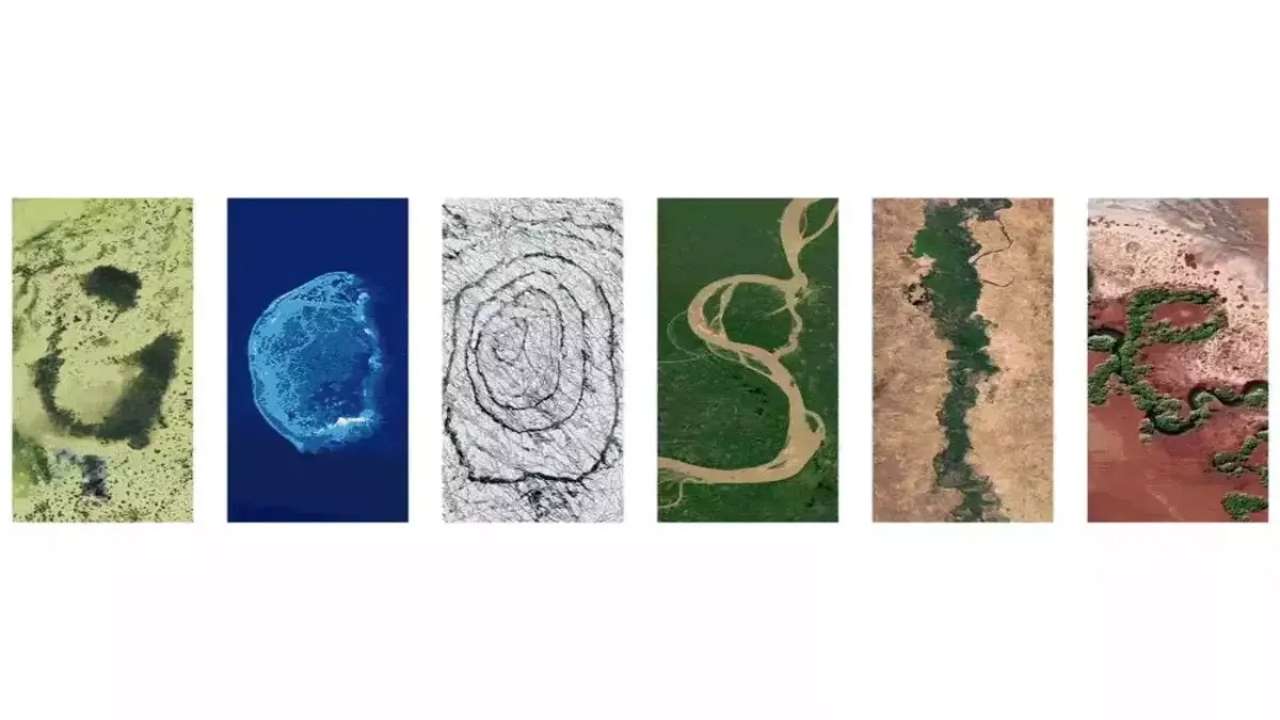
Google shared a doodle today to celebrate World Earth Day 2024, which showcased aerial photos of the planet’s biodiversity and natural beauty. Google reminded us of the importance of protecting planet earth for future generations with the help of this doodle.
The Google letters depict specific locations across the globe where people, communities, and governments work every day to help protect the planet’s natural beauty, biodiversity, and resources, according to the explanation of the annual Earth Day 2024 doodle on their website.
It said, these examples remind us that there’s much more to do to address the climate crisis and biodiversity loss, but also offer the promise of hope and optimism.
The islands of Turks and Caicos are represented by the letter “G.” The islands’ conservation efforts are concentrated on protecting important regions for biodiversity and addressing persistent environmental problems.
The largest reef in the southern Gulf of Mexico and a UNESCO biosphere reserve, Scorpion Reef National Park, is represented by the letter “O” in the Mexican flag.
The letter “O” features Iceland’s Vatnajokull National Park, which was designated as a national park in 2008 following decades of advocacy. The ecology within and surrounding the biggest glacier in Europe is safeguarded by this UNESCO World Heritage Site.
The letter “G” has the Jau National Park in Brazil on it. It is a UNESCO World Heritage Site and one of the biggest forest reserves in South America.
The Great Green Wall of Nigeria is represented by the letter “L,” and the Pilbara Islands Nature Reserves of Australia are represented by the letter “E.”
Meanwhile, Earth Day is a worldwide event that promotes protection of the environment every year. April 22 serves as a reminder of the importance of conservation efforts and sustainable practices to guarantee a healthier world and a brighter future.
The occasion inspires people across the world to come together and take action to protect the environment, strengthening our bonds with nature and promoting good change.
Latest world news
Bigg Boss 14 contestant Rahul Vaidya struggles walking in knee deep water, compares Dubai rains with Mumbai floods
Singer and TV personality Rahul Vaidya was recently stranded in the Dubai rains.

Rahul Vaidya, who was in Dubai ahead of his show which was scheduled to take place today, left the country due to heavy rains and reached Kolkata. The artist shared on social media his encounters in the UAE city, including challenges like walking through knee-deep water. Rahul provided an update regarding the heavy rainfall in Dubai on his Instagram profile.
The Bigg Boss 14 contestant revealed that he was in Kolkata and prepared to do an evening performance. Recalling the terrifying period he went through, Vaidya said there was a lot of confusion and panic in Dubai. The situation was similar to that when heavy floods hit Mumbai in 2005.
Vaiday also posted seval other images and videos of cars that were underwater and flooded roadways. The Bigg Boss 14 contestant, who shared his ordeal, claimed that even though it had just rained for two hours, the situation was dire.
In one of the video, which went viral he can be seen struggling in walking in knee-deep water. He can be also seen holding his sneakers in one hand and with other hand he was seen managing other things.
This is the result of the two hours of rain that it had, he can be heard saying in the video. Vidya also said he dosen’t believe Dubai is accustomed to a lot of rain. Everything had stopped working, he remarked.
After taking part in the first season of the singing reality show Indian Idol, Rahul Vaidya gained widespread recognition. In addition to Bigg Boss, he took part in Khatron Ke Khiladi 11.
Meanwhile, heavy rains that triggered flooding in the UAE and Bahrain, which left 18 people dead in Oman on Sunday and Monday, have paralyzed the financial hub of the Middle East, Dubai.
A lot of incoming flights were diverted from Dubai’s international airport because of the rain. At 7:26 p.m., the busiest airport in the world for foreign visitors stopped accepting new arrivals; a gradual resumption was announced for more than two hours later.
Images of planes navigating flooded tarmacs are making the rounds on social media.
According to pictures shared on social media, the flagship malls Dubai Mall and Mall of the Emirates both experienced heavy floods, while at least one Dubai Metro station had water up to the ankles.
There were several road collapses, severe flooding in residential areas, and numerous reports of leaks from windows, doors, and roofs.
Due to the unfavourable weather, schools around the United Arab Emirates were forced to close, and as more storms are predicted, the closures are anticipated to last until Wednesday. The government of Dubai allowed its staff to work remotely till this Wednesday.
Latest world news
Dubai sky turns green during storm in UAE, video goes viral
The UAE witnessed record-breaking rainfall on Tuesday and the National Centre of Meteorology recorded 254 mm of rainfall in less than 24 hrs in the Khatm Al Shakla area in Al Ain.

1 person was killed in UAE as it witnessed heavy rainfall on Tuesday, stranding commuters, flooding roads, disrupting trains and flights and resulting in water leakage from mall ceilings. The UAE witnessed record-breaking rainfall on Tuesday and the National Centre of Meteorology recorded 254 mm of rainfall in less than 24 hrs in the Khatm Al Shakla area in Al Ain. It is being said that the rainfall was the highest documented since the start of data collection in 1949.
The heavy rainfall in UAE came days after a similar situation in neighbouring Oman, where 13 people were killed in flash floods. Many parts of Oman saw torrential rains, which caused students to be trapped in buses and swept away motorists and trapped people in their homes.
Videos from Dubai circulating on social media showed widespread waterlogging on roads in Abu Dhabi, Dubai and other important cities. This left daily commuters in cars and other vehicles struggling to get back home. Dubai metro station too was seen flooded and closed.
One such video circulating on social media shows the aerial view of the city of Dubai from the top of a building. In the video the stormy winds are seen blowing over the city of Dubai. As the storm intensifies the Dubai sky turns green and ultimately gets covered by heavy rainfall. The video has gone viral on social media with more than 1.1 million views.
Another video showed water leakage from the ceilings of shopping malls, flooding the floors and destroying goods. A video which was shot in the famous Mall of the Emirates, showed pieces of ceiling falling as the rainwater gushed inside. Videos from many outlets of the Deira City Centre mall chain showed escalators being rendered unusable. Majid Al Futtaim, the company which owns the Mall of Emirates, said that the shopping complexes have been kept open and the customers are being sent away from the flooded areas.
-

 Entertainment22 hours ago
Entertainment22 hours agoManisha Koirala reveals reason for rejecting Dil To Pagal Hai, says regrets that decision
-
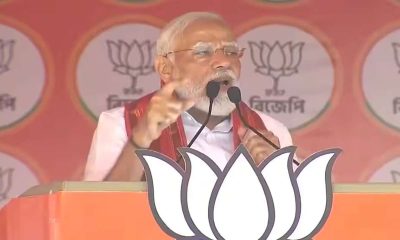
 2024 Lok Sabha Elections21 hours ago
2024 Lok Sabha Elections21 hours agoPM Modi says Congress leaders consider themselves above Lord Ram
-
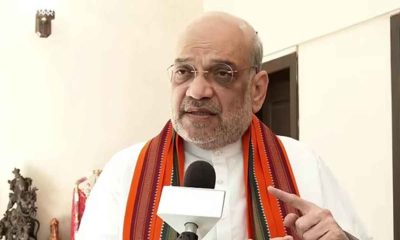
 2024 Lok Sabha Elections23 hours ago
2024 Lok Sabha Elections23 hours agoAmit Shah says neither Congress nor Trinamool chief Mamata Banerjee can interfere with CAA
-

 Trending22 hours ago
Trending22 hours agoDolly Chaiwala sips coffee atop Burj Khalifa, video goes viral
-

 Trending21 hours ago
Trending21 hours agoNexon owner replaces broken side mirror with a plastic mirror, social media users say epic moment
-
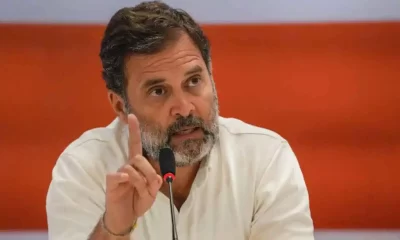
 2024 Lok Sabha Elections3 hours ago
2024 Lok Sabha Elections3 hours agoRahul Gandhi clarifies on wealth survey remark, says aim is to identify injustice
-
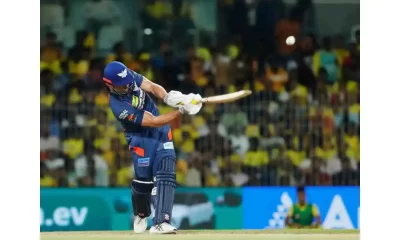
 Cricket news4 hours ago
Cricket news4 hours agoIPL 2024: Marcus Stoinis hits first IPL century as Lucknow Super Giants beat Chennai Super Kings by 6 wickets
-
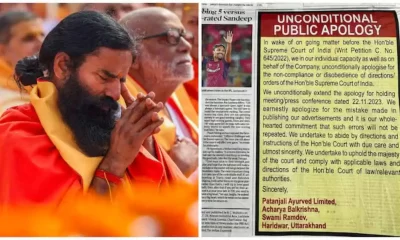
 India News2 hours ago
India News2 hours agoRamdev, Balkrishna publish bigger apology in newspapers after Supreme Court’s rap

